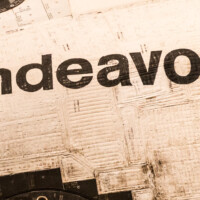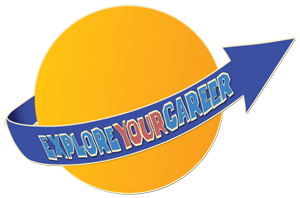
The idea of switching careers rests on an old notion that we are defined by what we do. A carpenter is a carpenter. A banker is a banker. A retail store assistant is… well, you get the idea. If we accept this view of our relationship with work, switching careers becomes a great personal upheaval. It becomes a negative even morbid notion; something we do at times of despair and desperation because of the great personal risk, especially if this is something we’re thinking about in the second-half of our career. Who in their right mind would walk away from half a lifetime of skill and experience?
If a carpenter becomes an actor, a musician becomes an airline pilot, or a mail-room worker becomes CEO of a globally renowned organisation, have any of these people really changed careers? If a successful executive decides to become a barber, a brewer or open a chain of artisan cheese shops, have they all changed careers too? The people who make these kind of changes and transitions in their working lives – or to be more accurate in their lives, because this kind of change always has holistic effect – struggle with the idea of switching careers partly because they feel confined by the old way of thinking. If the label or the experience of what they have always done feels limited or confining, they have broken free of this mould, and in doing so they have proven we are more than any definition, profession or individual working past.
For me, what these brave souls and others like them have also proven is that the accepted definition of the word ‘career’ needs to be updated. This isn’t just a dictionary correction either, although it would be nice to have Webster and Oxford add something new to their canon here. The real change needs to take place in the way we think, feel and behave in our individual relationship with work, especially when we are facing or inviting significant change in our lives.
So for this new definition, as well as ‘career’ being associated with ‘profession’ as it always has in the past, we need the word ‘career’ to associate with people – all people. What we need is a new and permanent relationship – between us and our careers, between you and your career – that includes and empowers everyone who is working today, and everyone who will experience work in the future. This additional definition is worthwhile because it changes how it feels to go through changes at work at every stage of our working lives, including latter stages and right up to retirement.
This new definition for ‘career’ needs to span and incorporate all the working years of our lives, regardless of change. In other words, we only have one career. That career starts when we are introduced to work – so it encompasses all of those little jobs we do for peanuts when we’re young – for example, the babysitting, the part-time/weekend stuff, and all of those formative years. Our career then continues and goes on all the way up until we retire. It follows us through all of the climbs, the lessons, the hard-yards, the good, bad and ugly of work. Our career also stays with us through the twists, turns and, most importantly, throughout all of the change we experience. Whether that change is in the form of expected small steps, like moving from one job to another, or whether there are giant leaps to be made across chasms of the unknown – as happens when we change something big like an industry or profession.
Thought of in this way, everyone’s career is a single entity. A vessel within which all of our working experiences are not only included but are given the greater potential to be valid and validatory too. It doesn’t matter where you gained a particular piece of experience if you accept this definition. What matters far more is the experience – and everything it has taught you – is yours. For whatever reason, if you can’t seem to forget something that happened to you, then it is valuable. Where the experience was gained and when it happened has far less importance.
A career with this definition also becomes a career we can’t lose. This is important because at the lowest points, when everything really does feel lost, we all need to know that we still have a career. We still possess something – an important part of our relationship with work – that cannot be lost or taken away.
I’ve worked in career development for a number of years now. During this time I have worked with senior executives of the highest standing. I’ve also worked with people who have never had a job in their lives or have never had a positive outlook on work. Something these experiences have taught me is the people at the opposite ends of this scale have a great deal in common. When the executive is under stress, he or she fears for the future of their career. When someone is at their lowest point they don’t believe they have a career. I can’t tell you how many times someone has started a conversation with me by saying, there’s no point talking to me about careers, I don’t have one. If you have ever been in this place or anywhere like it, you will know why this understandable but unhelpful way of thinking needs to be changed.
We all get one career and it encompasses all of our working lives but what genuine difference can this definition make to someone in the second-half or latter stages of their career, thinking of making a big switch? For me, the biggest difference it makes is the feeling we no longer have to walk away from anything we don’t want to (from our past). This turns a major negative into a positive. What we’ve learned in our career-to-date can help us make big decisions. Instead of being dead in the past our experience becomes a living part of our future, as the past always should because it contains so much learning. Without the associated thoughts and feelings of loss and regret – because we are no longer thinking about ‘walking away’ from anything – our past becomes a relevant part of our present and future in a way that supports positive action and behaviour. What what we do now and what we do next no longer has to feel disconnected from what we have done before now.
If you are currently thinking about making a switch and you are in the second half of your career, the best piece of wisdom I can offer you is this: You are not changing career. Instead, you are at a point where change is either happening to you or it’s a choice within your career. To help you deal with this change, think about everything you have done, even the experiences you would rather not repeat. Bring all of your working life back into sharp focus. Bring it all back to life and ask yourself what needs to be different for sure but don’t leave out anything that may be of value or importance to you.
Yes, it takes time and no small investment to undertake career exploration like this but the reason you might want to make that investment in yourself is because the resulting change and periods of transition will feel utterly different. You are no longer lost and you are no longer alone. You aren’t defined by what you do, nor are you stuck or parting with anything you would rather hang on to.
To finish, I’m sharing what a very wise and experienced career development pro said to me on more than one occasion when we talked to people about significant career change. ‘The best form of career change is one that leverages everything you have gained in the past, and offers opportunity as far as the eye can see’. It always made sense when he said this, and it still makes perfect sense today. It is also a great way to express the singular career in a nutshell. Every person has a career and all careers include great change. When one person, one career makes sense to you, making a switch at any point is a completely different proposition.
* * * * * *









Recent Comments